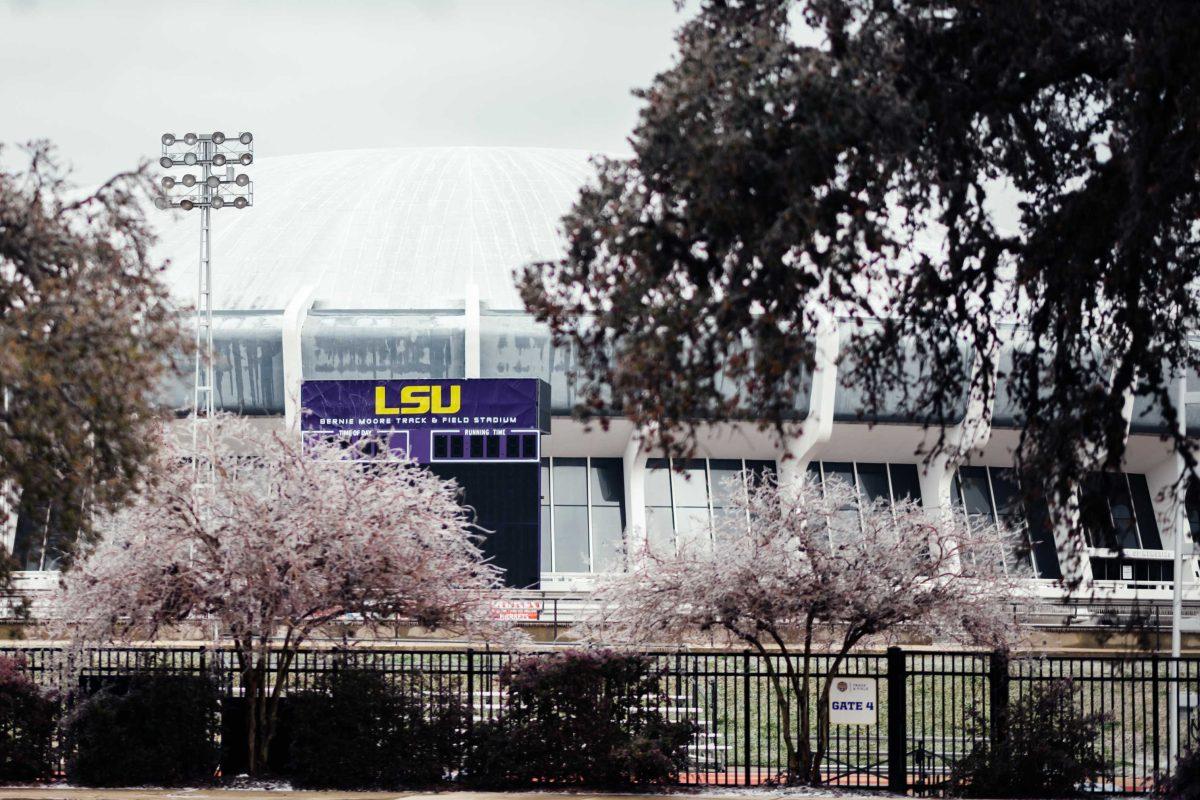This story was produced with Tiger TV reporter Brooke Smith. Read Tiger TV’s article and view the corresponding video here.
When students first enter college, they are exposed to a freedom many have never experienced. No supervision and the ability to skip class combined with a virtually unlimited social calendar and alcohol access leaves many parents and students questioning safety. Rideshare apps were originally intended to alleviate fears by offering an alternative to drunk driving or walking home in the dark, but have since caused concern.
University of South Carolina student Samantha Josephson made a simple mistake any college student could have made on the night of March 29 – she was separated from her friends, trying to get home and mistook another car for her Uber ride. However, the error proved to be deadly when she was brutally murdered by the fake Uber driver, according to national news outlets.
Many University students heard Josephson’s story as it made headlines across the country, and are concerned about the safety of ridesharing apps around campus.
Uber has served the LSU community since 2014. The popular ridesharing app boasts decreased drunk driving rates and promises safety to its passengers on their website. Since 2010, Uber has self-reported decreases in alcohol-related accidents in major cities. Records from the Louisiana Highway Safety Research group have not been able to confirm a direct correlation between the popularization of Uber and a decrease in drunk driving incidents.
In a city with poor infrastructure and limited public transportation, University students were all too eager to accept Uber’s reign as the most popular option.
What began as an unconventional alternative to buses, shuttles and bothering friends in the early morning hours has now become a regular aspect of students’ lives. However, the South Carolina incident is not the only circumstance that has University students rethinking their transit choices.
In February 2017, two Baton Rouge Uber drivers were charged with DWIs. One of the drivers was on his way to pick up a passenger while his BAC was .148. The other driver, who had a prior offense, had a BAC level of .146 while he had a passenger in the car, according to arrest reports.
In March 2018, a group of students traveling back to LSU’s North Hall in Residential College One after a late night in Tigerland got into the car of a man pretending to be an Uber driver. The driver, identified as Austin Ragusa, 23, demanded money from them after he dropped them off. Although the students obliged, he jumped out of the car, pulled out a knife and chased the students back to their dorm building. Ragusa was arrested by LSUPD and booked into the East Baton Rouge Parish jail on April 17 on one count of aggravated assault.
Another more recent incident on Feb. 19 involved another fake rideshare app driver allegedly attacking a woman he picked up from Tigerland. The driver allegedly sexually assaulted her, and she had to jump out of the moving car to escape, according to police reports.
The University responded to rideshare safety concerns on the LSU Residential Life Website, although it appears to have not been updated since the March 2018 incident. The web page is a direct response to the students at North Hall.
“After the reported incident near Residential College One – North Hall last night, we want to assure you that your safety is of the utmost importance to us,” the response said. “At no point were the residence hall community security measures compromised. Students were being transported back to their campus home by a ride-sharing service unaffiliated with LSU when the alleged attempted robbery occurred. No one was injured. Once the incident was reported, the LSU Police Department and on-call Residential Life staff responded swiftly to support the students involved.”
The web page also provides safety tips, urging students to ensure they are entering the right vehicle and to never accept a ride from someone claiming to be an Uber if you have not requested a ride through the app. It also reminds students to walk in groups and consider utilizing free campus transit.
Still, these incidents leave students to wonder what they can do to remain responsible after a night out.
Engineering sophomore Marcus Cepeda said it helps to remind himself he is in control.
“It’s important to know that you are the person in charge of the ride,” Cepeda said. “Just because the driver’s coming to pick you up and drive you around doesn’t mean they are in charge of your life. You have to make sure you’re getting in the car with the right person.”
Some of these incidences have students wondering if they should seek an alternative to Uber and Lyft, but kinesiology freshman Muhammad Yahya said students are going to continue to use Uber as long as it is the most widely available option.
“It’s much quicker. There’s always more Ubers and Lyfts around than taxis,” Yahya said. “Either way, a taxi or an Uber, they’re both strangers. It doesn’t really matter which you choose.”
After the South Carolina incident, Uber also sent out an email to remind its users to always match the license plate number of the car they ordered with the vehicle that arrived, to match the car’s make and model and also to check the driver’s photo to ensure that it is the same person behind the wheel.
Another statement issued by the University in November 2018 reads, “LSU works diligently to make the campus as safe as possible. We ask our students to use good safety practices, both on campus and off, and encourage them to use the resources that LSU offers when they are on campus and in the surrounding area. The safety of our students, faculty, staff, and visitors is of the utmost importance to LSU. We urge the campus community to be vigilant and report anything of concern to police in a timely manner.”
On Tuesday, South Carolina House of Representatives introduced a bill requiring ridesharing drivers to have a lighted sign on their cars, according to reports by CNN, CBS News and The Washington Post. Whether Louisiana lawmakers choose to follow suit remains to be seen.
Recent crime raises ride share safety concerns on LSU’s campus
April 11, 2019
FILE – In this Tuesday, Jan. 12, 2016, file photo, a driver displaying Lyft and Uber stickers on his front windshield drops off a customer in downtown Los Angeles. Hailing a ride with a smartphone app in many U.S. cities could come down to a fight over fingerprints. Following incidents where Uber drivers were found to have criminal records, a growing number of state and local governments want ride-hailing drivers to undergo fingerprint background checks. Uber and its chief rival, Lyft, have fought those checks, contending their own method of vetting drivers is just as safe. (AP Photo/Richard Vogel, File)
More to Discover










